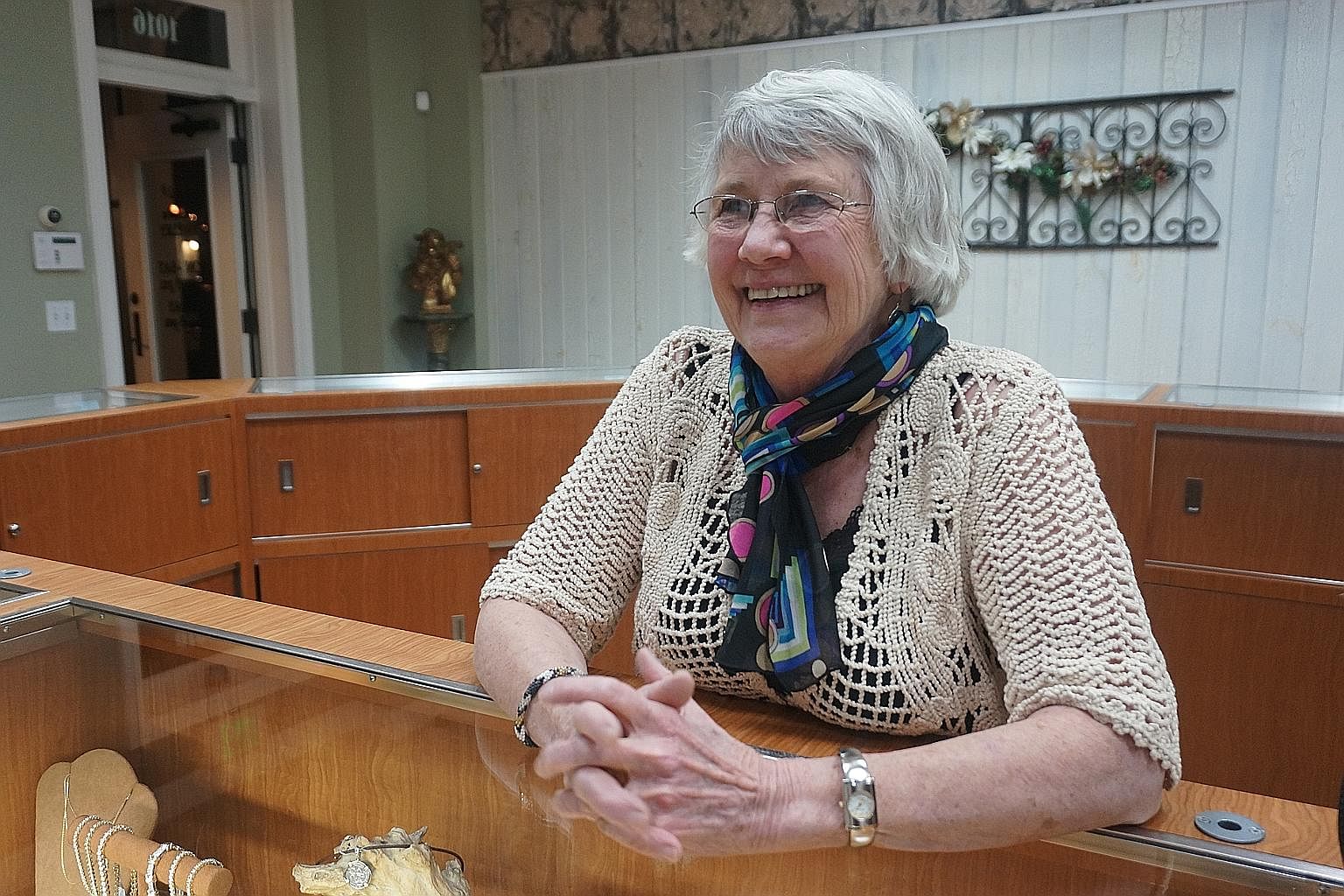As Florida GOP chairman Blaise Ingoglia told the 2,500 activists bluntly at the start of the confab: "We need to win back the White House and, to do that, we need to win Florida."
Indeed, number crunchers agree that it is almost impossible for Republicans and very difficult for Democrats to win the presidency without taking Florida.
"It's a hotly contested state and it's a really good prize. That's why Florida is always critical in a presidential election," said Dr Casey Klofstad of the University of Miami.
At a time when 40 out of 50 states in the US have backed the same party in the last four elections, Florida, with its 29 electoral votes, is one of the few that are split down the middle. And each win is coming with razor-thin margins. President Barack Obama won the state in 2012 by less than 1 percentage point.
Then there is the added drama this year of having two "hometown heroes" facing off in the primary elections - Mr Bush and Senator Rubio. This time around, the primaries do not just shore up the position of any one candidate, but it could be disqualifying for one or both Miami residents. (See other report.)
That Florida remains one of the few states where the outcome of the presidential election defies prediction is largely down to its diversity.
In some ways, the state of 20 million people is a microcosm of the country at large.
"Florida looks a lot like the country in terms of its demographic profile. It's a large state, it has urban areas and rural areas so there's a balance between the Republican and Democrat strongholds. It's very diverse ethnically. So it's a mirror in some ways of the country, and it's a closely-divided country," said Dr Michael McDonald of the University of Florida.
The diversity of opinion across the state comes across strongly. None of the stereotypes of Republicans and Democrats seems to neatly fit Florida residents.
Mr Frank Carrasco, 30, who is openly gay and the son of Hispanic immigrants, should, for all intents and purposes, be a Democrat. Yet he leads the Republican Law Student Association at the University of Miami.
By contrast, Ms Kathy Anderson, 73, a white middle-class American living in The Villages, a retirement community in Central Florida known as among the reddest cities in the US, is an avowed Democrat.
"A lot of Republicans come to The Villages but I don't think we've ever seen any Democrats. It's good to go where you are wanted," she said.
In The Villages, touted as the world's largest retirement community with a population of 110,000, Republicans outnumber Democrats two to one, and voter turnout is among the highest in the country at 80 per cent.
Then there are those like chess teacher Diego Milla, 29, who walks around Miami in a T-shirt supporting Mr Donald Trump but says he does not intend to vote.
"I am disillusioned with the system so I'm not going to vote. But if anyone should be president it's this guy," he said, pointing to his T-shirt. "Trump says it like it is."
Adding to the complexity is the fact that so much of Florida's population is transient.
Retirees seeking to flee colder states have been known to flock to Florida, as have migrants from nearby Latin American countries. Among the older folk, while the "snowbirds" (those who come only during winter) do not vote in Florida, the "frogs" (those who come to croak) do.
And every group affects the political balance differently. Puerto Ricans, who have come to the state in droves over the past decade, are overwhelmingly Democratic voters while Cuban-Americans, many of whom continue to hold a grudge against Democratic president John F. Kennedy for his failure to unseat Cuban leader Fidel Castro in the Bay of Pigs invasion in 1961, vote Republican.
A gentle question about elections posed to a group of elderly Cubans hanging out outside Versailles Restaurant - a place that has become the de facto community centre for the Cuban community in Miami - instantly triggers tirades about the "bad Fidel".
And the differences across the state are far from subtle. Travel the Florida turnpike from Miami to Gainesville and the highway takes you from a city with a large Hispanic community and many signs in Spanish and spits you out in a largely white university town. Drive a few minutes outside of Gainesville and the proportion of older white Americans shoots up.
Even the highway signboards tell you when you are heading into conservative territory - suddenly orange juice and theme park ads are interspersed with those bearing anti-abortion messages.
The issues that matter similarly run the spectrum. Residents cite everything from gun control to immigration and the economy. No single issue stands out as being the clear path to winning the hearts and minds of Floridians. There is not even consensus within the Cuban community on the US' normalisation of ties with Cuba.
All that adds up to an interesting year ahead for the Sunshine State.
As data scientist Jim Callahan, 56, said: "I'm backing Hillary (Clinton) and I think she has a good chance here, but this is Florida and you never know what is gong to happen.
• Additional reporting by Melissa Sim
Find out why Florida is such an important state
http://str.sg/ZR4Q





